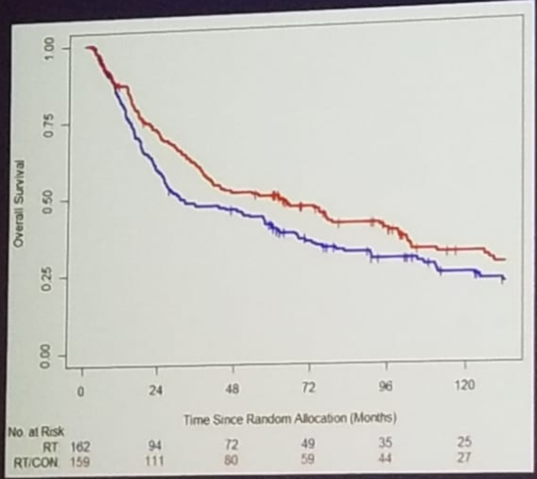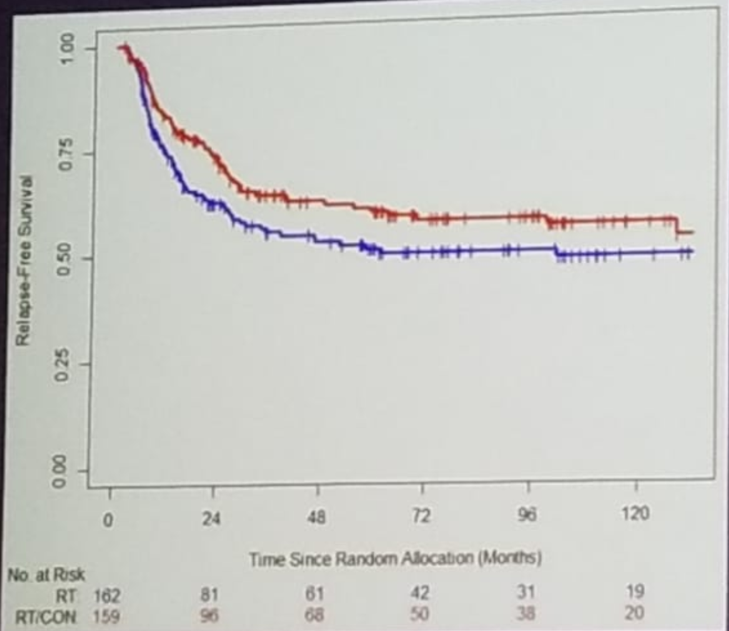In the BCON trial, radiotherapy alone was compared to radiotherapy with carbogen and nicotinamide. Nicotinamide 40-60 mg/kg taken orally on a daily basis had been used for hypoxia modification, together with Carbogen (98% O2, 2% CO2. The primary outcome was local control. A total of 333 patients have been recruited with a median age of 74 years (51-90). All patient were T1G3 or T2-4aN0M0.
In this presentation Dr. Song, an update of this trial was presented with 301/321 (93.8%) of the patients being updated. The median follow-up was 10.3 years. The overall survival data demonstrated a clear benefit to the radiotherapy + hypoxia modification arm with a median overall survival of 55.5 vs 30.4 months, and a 5-year overall survival rate of 49.8% vs. 39.9%, p=0.05 (Figure 1).
Figure 1 – Overall survival:

The relapse-free survival was also better in the radiotherapy + hypoxia modification arm, with a median of 152.7 vs. 61.5 months, and a 5-year recurrence-free survival of 59.4% vs. 50.7 (p=0.07) (Figure 2).
Figure 2 – Recurrence-free survival:

In conclusion, a sustained benefit of hypoxia modification in bladder preservation treatment was demonstrated. Improvement in overall survival and relapse-free survival was evident as well. Lastly, Dr. Song concluded that BCON is a standard of care, recommended in the NICE guidelines in the United Kingdom.
Presented by: Yee Pei Song, The University of Manchester, Manchester, United Kingdom
Written by: Hanan Goldberg, MD, Urologic Oncology Fellow (SUO), University of Toronto, Princess Margaret Cancer Centre @GoldbergHanan at the 2019 American Society of Clinical Oncology Genitourinary Cancers Symposium, (ASCO GU) #GU19, February 14-16, 2019 - San Francisco, CA
Related Content:
ASCO GU 2018: Use of Molecular Markers in Bladder Preservation Therapy


